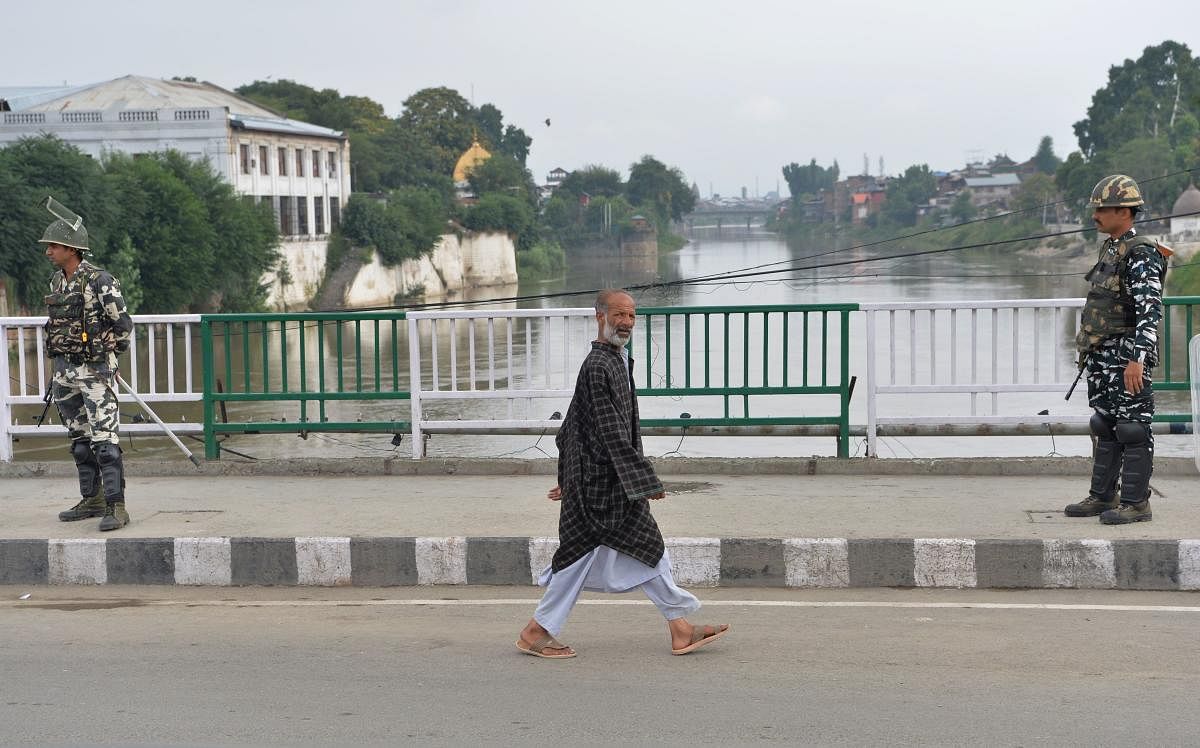
As an ambulance driver, witnessing emergencies on a daily basis is nothing new for Bashir Ahmad.
During 2010 and 2016 summer unrests in Kashmir, not only he ferried dozens of critically injured people to hospitals, but he had to pick and drop the hospital staff as well.
In 2019, Ahmad rushes through the Valley roads again, ferrying hospital staff and patients, but has to move with caution. Seeing the dead and injured everyday has made him hard-hearted. But several times in the past he had to face the wrath of security personnel and stone-pelting youth.
In the last three decades of conflict, ambulance drivers have put their lives in jeopardy to save others' lives. They played a pivotal role in keeping the hospitals functioning under challenging circumstances.
During 2016, seven ambulances drivers were injured and more than 200 ambulances were damaged. However, these drives amidst military siege, showering of pellets, stones and bullet bombardment helped save hundreds of lives.
The time when public and private transport virtually becomes unavailable, ambulances are the only hope for patients to reach hospitals.
These days Ahmad says security personnel have been ‘harassing’ ambulance drivers and hospital staff.
“We have to manoeuvre through barricades and razor wires. We are stopped by security forces and often asked to make detours, as personnel ask for curfew passes, which have not been issued to the majority of people attending essential services duties so far,” he told DH.
“We ferry patients from one hospital to another. Security forces do not allow smooth passage for ambulances. They mostly ask us to make detours, which puts the lives of patients at risk,” he added.
Another ambulance driver at Srinagar’s lone maternity LD Hospital said he is at loss to understand why the administration is reluctant to issues curfew passes to them.
“Even after several requests from the administration of our hospitals, we are being denied curfew passes. Even ambulances are allowed to move during wars, but alas we are being harassed while performing our professional duties,” he rued.
Not only the ambulance drivers, but the drivers of the staff buses of Government Medical College (GMC) and SK Institute of Medical Sciences (SKIMS) Soura in Srinagar also do not have any curfew passes.
“We operate in various areas of Srinagar, but security forces are making things difficult for us,” said Mehraj-u-Din, a bus driver of the GMC.
Dr Zaid Ahmad Wani, an associate professor at GMC, Srinagar, who had conducted a research on the life of ambulance drivers some years ago, said most of the drivers are afraid to move out during the unrest period, a fear that gets accentuated during the night.
“The stress faced by these professionals during their duty hours highlights the challenges faced in maintaining an optimum level of healthcare in such circumstances,” he said and added that 89% of drivers reported that they experienced increased irritability, headaches and body aches while most of them reported sleep disturbances.